Small-scale fishing − one of the world’s most important sources of food − remains one of the least digitised sectors of the global economy. The lack of data has consistently frustrated the management of small-scale fisheries and the conservation of marine life.
We believe that marine conservation can only succeed at scale when managed by those who depend on the sea. Fishing communities have the most at stake, and the most to gain from ocean recovery. Our approach to monitoring and evaluation focuses on supporting coastal communities to monitor fisheries themselves. This participatory monitoring, backed up by strong technical support, puts data in the hands of local fishers so that they are empowered to manage their fisheries.
Why focus on data?
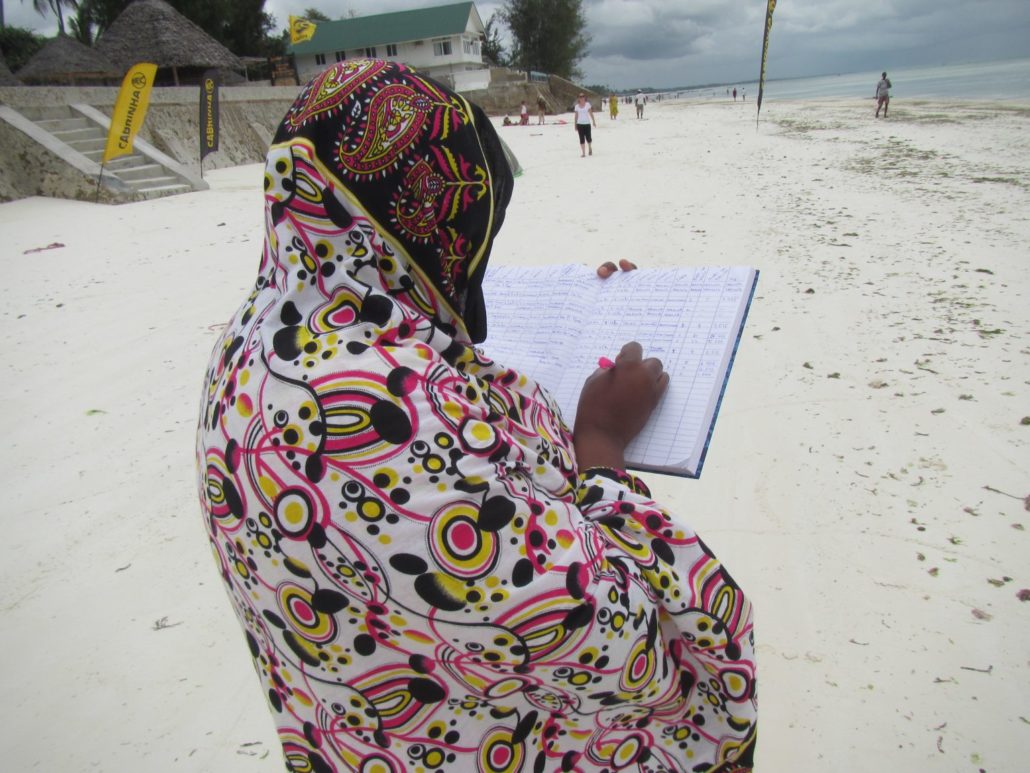

Understand fisheries
To manage fisheries effectively, fishers need a deep understanding of their stocks. Data are key to developing this understanding and informing decision-making.
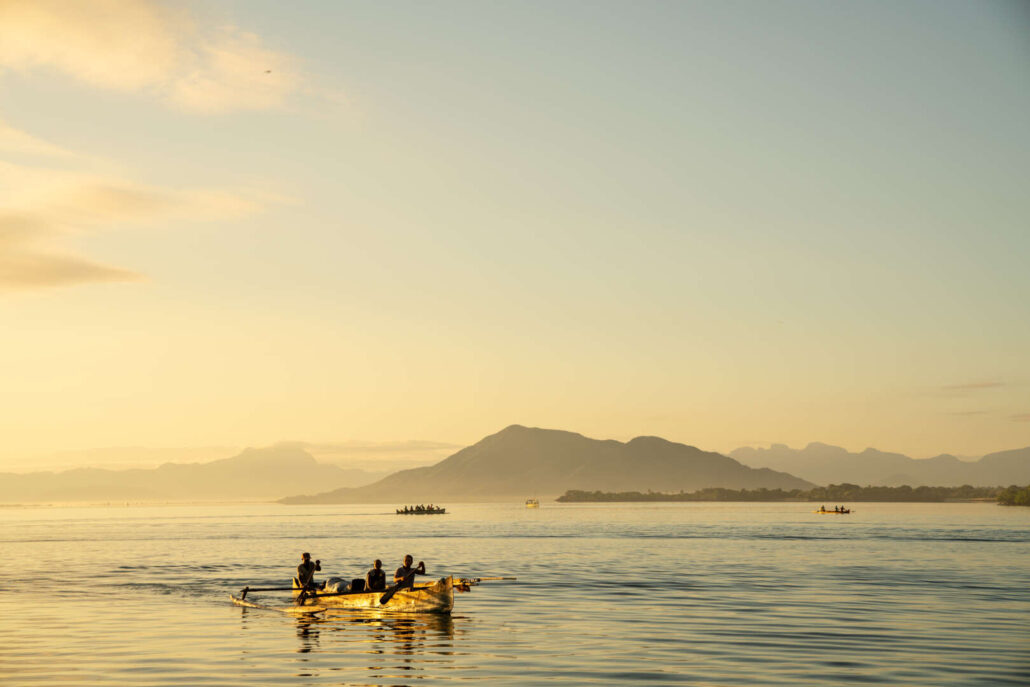

Complement traditional knowledge
Fishing communities have rich knowledge of their local fisheries, but this knowledge is rarely documented. By collecting and understanding data, communities are equipped with a deeper understanding of the state of their marine environment. Local knowledge helps validate and strengthen the data collected.
.
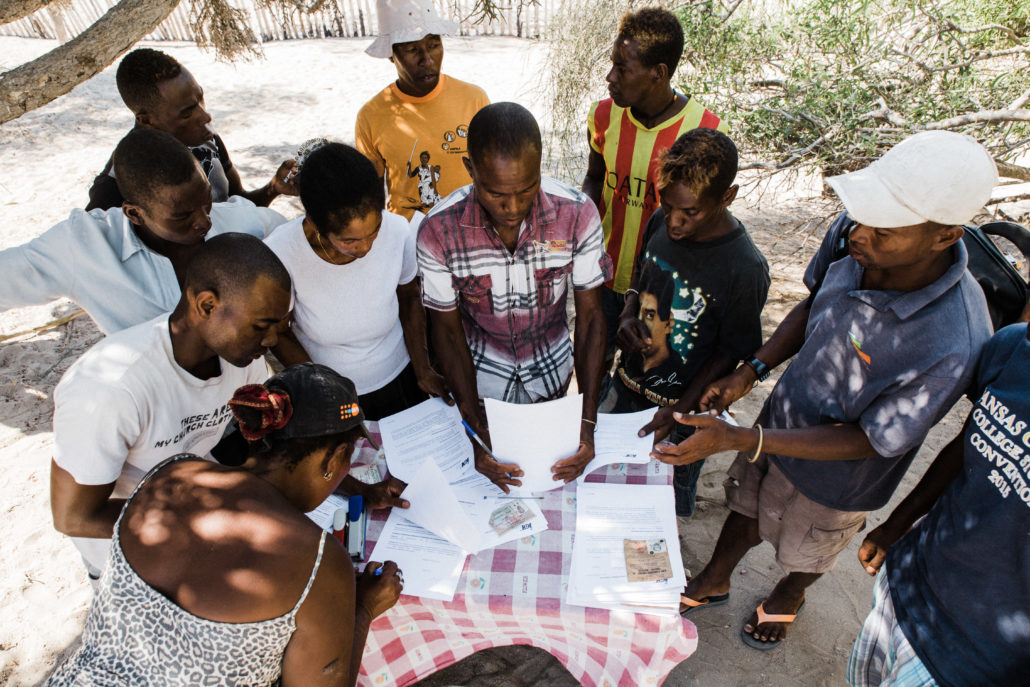

Community Engagement
Data feedback sessions can build local engagement in fisheries management. Inclusive sessions are designed to enable sharing learning and strengthening relationships between communities and decision-makers. Training in data collection tools and interpretation can empower communities to use their data to make informed decisions about fisheries management and conservation.
.
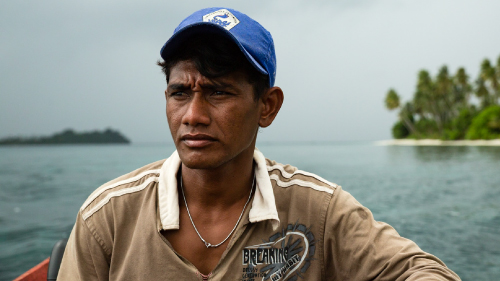

Strengthen local governance
Data can empower communities with a voice in decision-making and help resolve conflicts and disputes by informing evidence-based discussions.
.
Making data accessible
Presenting fisheries data in creative ways can demystify data, and improve information sharing. Our data feedback toolkit outlines best practices around data feedback.
To build local understanding, data must be communicated to the community in an accessible and culturally appropriate way.
Activities and simulations
Activities and simulations can encourage interaction and discussion among fishers, conveying complex information in fun and engaging ways, and maintain participants’ interest over time. Importantly, fishers can explore different concepts and approaches, modeling different fisheries management scenarios to enhance learning.
Our teams in Madagascar, Indonesia, Timor-Leste, and Comoros have used an octopus fisheries management game, simulating changes in the octopus population due to mortality, recruitment, and fishing, and evaluating the impacts of different fisheries management scenarios.
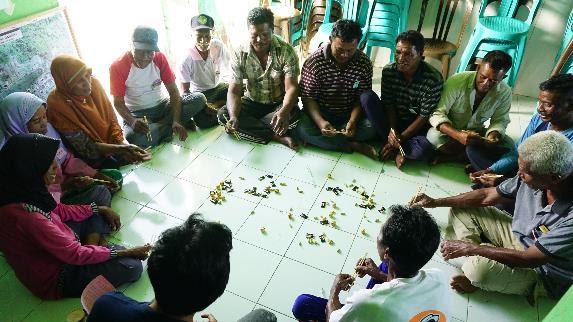
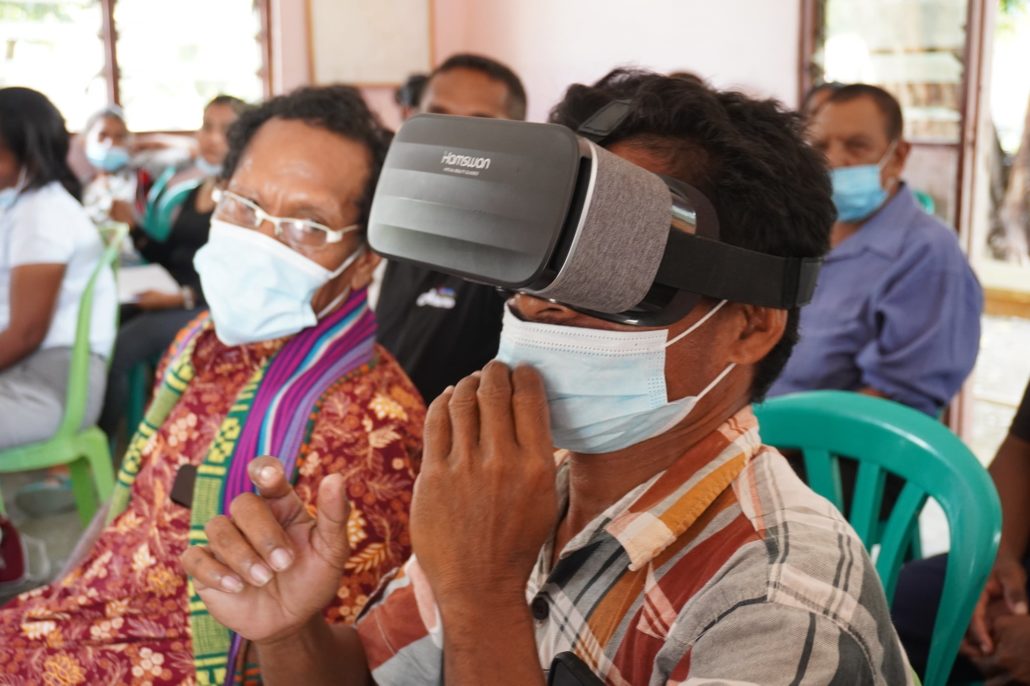
Virtual reality
Our team in Timor-Leste uses 3D virtual reality (VR) footage of local reefs to give the community members a chance to immerse themselves in their community’s marine biodiversity using a smartphone and VR headset.
Using virtual reality tools can be particularly powerful for engaging community members who might not have seen the species or habitats being monitored underwater − especially women and children – providing a new sense of motivation to the community to protect their seas.
Visualisation tools
Visualisation tools, such as Tableau, can be used to create graphs and figures that bring data to life and disseminate complex information in an accessible and engaging way. These visualisations enable faster, more efficient feedback of information and help communities make informed decisions about managing their fisheries.
A number of our partner organisations present data back to the community using hand drawn posters or animated cartoon characters in local dialects. In this way key findings and messages are easily understood by the community.
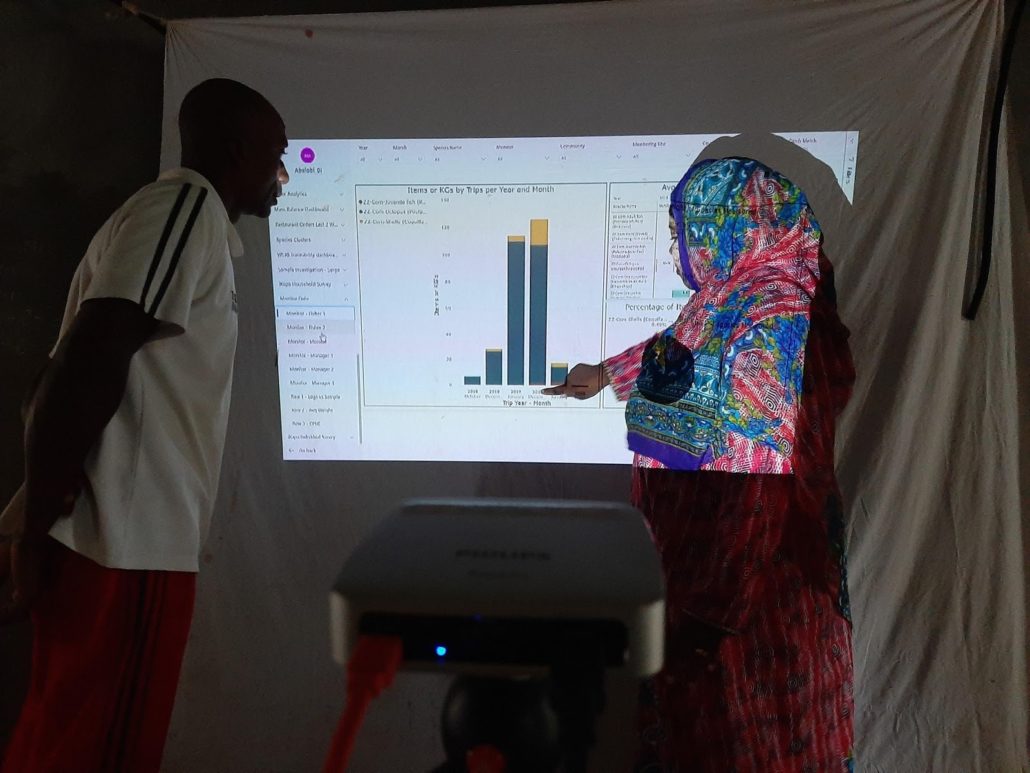
Data in action
In Indonesia, a number of our partner organisations present data back to the community using communications tools like posters, with key findings that are easily understood by the community – often using the local dialect.
Our partners begin by interpreting the data, before then creating these tools and using storytelling methods to explain why the data is relevant to the community. After the presentation of data, an open discussion about natural resource management follows.
For octopus fishers in Indonesia, data and data feedback sessions have enabled a better understanding of the current state of their fisheries, in turn allowing more agile and adaptive small-scale fisheries management.
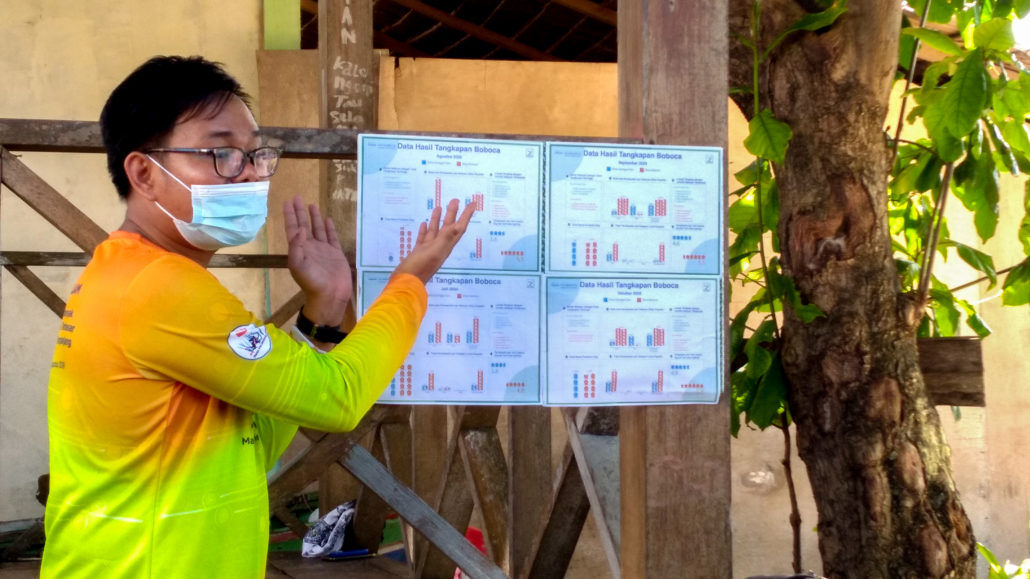
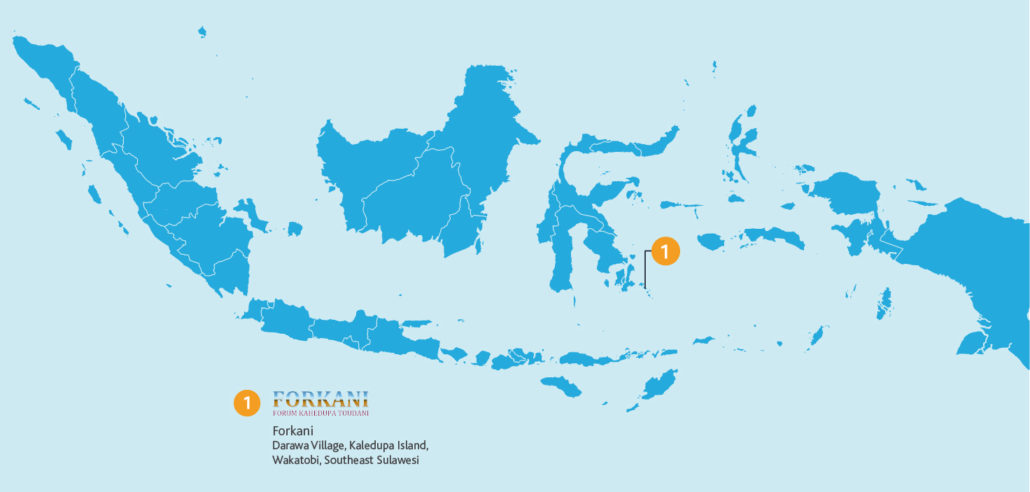
Darawa village, Kaledupa Island, Wakatobi, Southeast Sulawesi
Darawa village implemented its first temporary octopus fishery closure in June 2018. At the time, this was the first community-led closure of its kind in Wakatobi National Park.
To aid the decision-making process, the Darawa community began collecting data on its octopus fishery with the help of our partner FORKANI. FORKANI presented 15 months of catch data with maps of local fishing sites at community meetings with the village leaders.
During these meetings, stakeholders considered a number of key fisheries metrics collected from each site:
- Average weight (kg) of individual octopus caught
- Yield (the amount caught per fisher per fishing trip)
- Number of individual octopus caught
- Number of fishing trips
In Darawa, the data collected through participatory monitoring of the octopus fishery prompted the village to temporarily close three fishing sites for three months each in 2018-2019. The closures gave octopus time to increase in size and reproduce, generating larger, more profitable catches that command a higher price at market.
Following the initial closure, Forkani and the Darawa community analysed the data. They decided to change the locations of the closure sites to allow more equitable access for male and female fishers.
The success of these closures has left a lasting legacy in Wakatobi.
Through partnerships with two community-based organisations, FONEB and Komanangi, FORKANI has since gone on to support local communities to manage their octopus fisheries in Wangi-wangi and Binongko of the Wakatobi archipelago, growing a locally led movement for marine conservation.
We are very proud of our achievement: implementing this temporary fishery closure in our village. This whole process has proved that the Darawa community can work together as a team when it comes to monitoring our fishing sites and managing our fisheries. We have also been successful in encouraging our neighbouring communities to follow our rules. We will continue implementing temporary fishery closures, and we will make it part of our village programme. Our hope lies with the sea.
Pak Jumani
Head of Darawa Village
The future is data led
Grounding marine conservation efforts in evidence is vital to effective conservation, and these successes in Madagascar, Indonesia, Timor-Leste, and Comoros demonstrate the potential for data-driven and community-led conservation.
Blue Ventures is committed to sharing these approaches to enable broader adoption of community-led data gathering to enhance fisheries knowledge and management. This approach empowers local people to develop conservation initiatives that respond to their needs, allowing them to protect the marine environment on which they depend.
Manage Cookie Consent
We use cookies to enhance your browsing experience, serve content, and analyze our traffic.
Functional Always active
The technical storage or access is strictly necessary for the legitimate purpose of enabling the use of a specific service explicitly requested by the subscriber or user, or for the sole purpose of carrying out the transmission of a communication over an electronic communications network.
Preferences
The technical storage or access is necessary for the legitimate purpose of storing preferences that are not requested by the subscriber or user.
Statistics
The technical storage or access that is used exclusively for statistical purposes.
The technical storage or access that is used exclusively for anonymous statistical purposes. Without a subpoena, voluntary compliance on the part of your Internet Service Provider, or additional records from a third party, information stored or retrieved for this purpose alone cannot usually be used to identify you.
Marketing
The technical storage or access is required to create user profiles to send advertising, or to track the user on a website or across several websites for similar marketing purposes.
